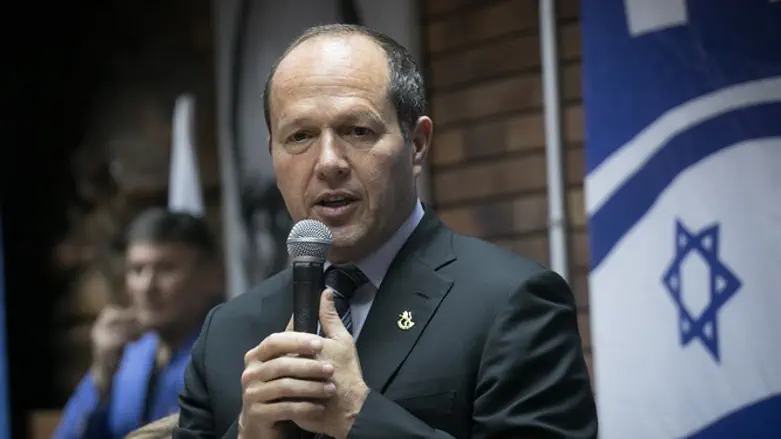
MK Nir Barkat, not only the former Mayor of Jerusalem but also a businessman, recently presented the Prime Minister with an economic plan for the accelerated development of Judea and Samaria.
In an interview with Arutz Sheva he discussed the plan, the Prime Minister's response, and the upcoming Trump political plan.
Barkat talks about working with Prof. Michael Porter of Harvard and recruiting his business experience alongside his own experience as a public entrepreneur during his tenure as Mayor: "We thought we'd scan the area and see what works, why it succeeds, and whether there's a potential to expand it." Such an examination raised the economic successes of industrial zones such as Barkan, Ariel, and Mishor Adumim, which combine Jews and Arabs. "We bring the technology, entrepreneurship, and capital and the success factors, and that's why we are integrating an Israeli and Palestinian labor force."
He mentions that in Area C, under full Israeli control, "some thirty thousand Arabs are working very well alongside the success of the settlement." In light of this reality, Barkat plans to build a dozen employment zones from north to south, especially in Area C, as well as establishing a dozen tourist areas centered around biblical stories scattered throughout Judea and Samaria, "to encourage Bible lovers to experience history."
Barkat says of the tourism project, even though it tells the historical story of the Jewish People in Judea and Samaria, the Palestinians will not be able to thwart it, since the sites are under full Israeli control and where "we don't have to depend on anyone. I don't have to ask permission to develop in Beit El the site of Jacob's dream or the Hevron site where David wrote the Psalms."
Barkat explains that the appeal to the Americans is focused on emphasizing investment in Israeli-controlled areas, regions whose development will be good for both Israelis and Palestinians, especially in light of the Palestinian refusal likely to be encountered when Americans seek to invest money and resources in areas A and B.
In light of this, Barkat was asked if this approach did not entrench the Oslo concept, dividing Judea and Samaria into three areas marked by different letters, while their political status changes accordingly. Barkat responds and proposes to place the issue of peace with the Palestinians aside, as he puts it, and examine the ability to upgrade the economy in Judea and Samaria in order to bring peace and security. "The program is based on land controlled and owned by Israel. From its inception we built the program on this basis," he says and explains that the plan formulated in coordination with settlement leaders and businessmen will strengthen economic cooperation with settlement alongside bringing more peace and security. As for the political status of the area, Barkat notes that he is "a great believer in expanding settlement and applying the law to the settlements alongside autonomy."
And what about PA opposition? Until now its people are working hard to counter the effects of normalization with Israel? Would you be able to promote the program regardless of the PA? Barkat mentions that even now, despite PA opposition, one hundred thousand Palestinians cross the fence every day to work: "They know that working for Jews is very worthwhile for them, and this happens despite the resistance of the PA."
"I showed the Americans that I believe they'll encounter a wall before development plans for Areas B and A. I tell them before this wall you have here a superhighway for development in Area C," says Barkat tells about the Prime Minister's impressions and its being called by Trump's messenger Jason Greenblatt, an interesting program. Now he hopes and believes that an American tailwind will help the plan, especially in light of the Palestinian Authority's response to the Bahrain conference.
Barkat summarizes the difference between his plan and the Trump program, seeing it as a kind of acceptance of the Trump program. According to the Trump program, so far emphasis has been placed on development in the Arab sector, while it seeks to transfer attention and resources to the Israeli side of the territory.
The right direction for investment: Barkat (Hebrew):